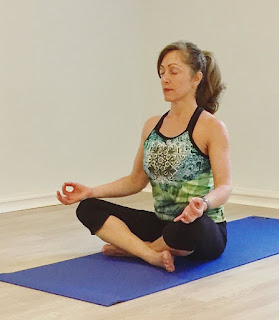Neurotransmitters control virtually all of
the body’s functions, from feeling happy to
regulating hormones to dealing with stress. Our thoughts influence our bodies directly because the body interprets
the messages coming from the brain to prepare us for whatever is expected.
These neurochemical changes prepare the body to deal with perceived danger in a
number of ways, such as raising blood pressure and heart rate to allow faster
speed and response time putting our bodies into a fight or flight
state. When positive thoughts are generated, when you are feeling happy or
optimistic, cortisol decreases and the brain produces serotonin, creating a feeling of well-being. When serotonin
levels are normal, one feels happy, calmer, less anxious, more focused and more
emotionally stable. Dopamine is also a neurotransmitter that helps control the
brain’s reward system and pleasure center.
The power of
a healthy attitude cannot be underestimated in the body-mind connection.
Chronic elevations in psychological stress suppress the immune system, and
suppression of the immune system raises the risk of viral infection and other
diseases. Resilient people actually resist illnesses, cope with adversity, and
recover quicker because they are able to maintain a positive attitude and
manage their stress effectively. By managing our attitudes and stress
levels, we actually control neurochemical transmissions in the body. This does
not mean that resilient people ignore that things are difficult, failures, loss
etc. It means they accept the difficulties and become curious about the lessons
they teach. They resist the urge to judge ones’ self or others too harshly.
They learn to focus and appreciate what they do have not what they have lost.
They learn to be in the present while looking forward to the future. Building
resilience helps to maintain a positive attitude and healthy immune system.
a healthy attitude cannot be underestimated in the body-mind connection.
Chronic elevations in psychological stress suppress the immune system, and
suppression of the immune system raises the risk of viral infection and other
diseases. Resilient people actually resist illnesses, cope with adversity, and
recover quicker because they are able to maintain a positive attitude and
manage their stress effectively. By managing our attitudes and stress
levels, we actually control neurochemical transmissions in the body. This does
not mean that resilient people ignore that things are difficult, failures, loss
etc. It means they accept the difficulties and become curious about the lessons
they teach. They resist the urge to judge ones’ self or others too harshly.
They learn to focus and appreciate what they do have not what they have lost.
They learn to be in the present while looking forward to the future. Building
resilience helps to maintain a positive attitude and healthy immune system.
Take care of yourself
To have good emotional health, it’s important to take care of your
body by having a regular routine for eating healthy meals, getting enough
sleep, and exercising to relieve pent-up tension. Avoid overeating and do not
look to unhealthy choices and behaviors. Try to create and maintain a healthy
balance in your life. Poor emotional health can weaken your
body’s immune system. This makes you more likely to get colds and
other infections during emotionally difficult times.
body by having a regular routine for eating healthy meals, getting enough
sleep, and exercising to relieve pent-up tension. Avoid overeating and do not
look to unhealthy choices and behaviors. Try to create and maintain a healthy
balance in your life. Poor emotional health can weaken your
body’s immune system. This makes you more likely to get colds and
other infections during emotionally difficult times.
Create
a Positive Mind
a Positive Mind
Relaxation methods, such as meditation, listening to music,
listening to guided imagery tracks, Yoga and Tai Chi are useful ways to bring
your emotions into balance. Meditation is a form of guided thought. It can take
many forms. For example, you may do it by exercising, stretching, or breathing
slowly and deeply.
listening to guided imagery tracks, Yoga and Tai Chi are useful ways to bring
your emotions into balance. Meditation is a form of guided thought. It can take
many forms. For example, you may do it by exercising, stretching, or breathing
slowly and deeply.
Some other helpful ways to help create a positive response in the
body is watching a comedy, playing a game, cooking or baking, light a candle,
set a measurable attainable goal, search for positive quotes, create a list of
your positive qualities, read a good book, connect with loved ones, etc. Our bodies have a direct response to how we perceive
our world. Surround yourself with positive thoughts. “When we change the way we
look at things, the things we look at change” ~ Wayne Dyer
body is watching a comedy, playing a game, cooking or baking, light a candle,
set a measurable attainable goal, search for positive quotes, create a list of
your positive qualities, read a good book, connect with loved ones, etc. Our bodies have a direct response to how we perceive
our world. Surround yourself with positive thoughts. “When we change the way we
look at things, the things we look at change” ~ Wayne Dyer
Blog
post by Ally Wilson.
post by Ally Wilson.


